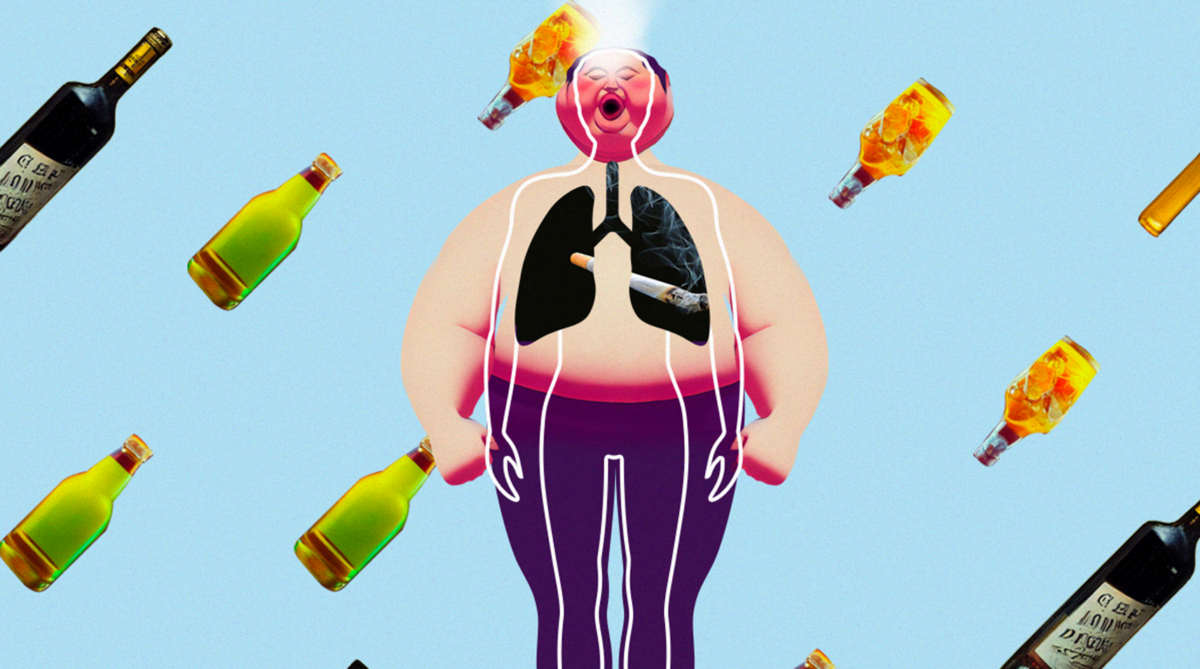 #News
#News
The impact of risk factors
Nearly half of cancer deaths in 2019 were attributable to smoking, alcohol, and obesity
 Créditos: Punto Comunicação
Créditos: Punto Comunicação
Smoking, drinking alcohol, and being obese (having a high Body Mass Index)—three potentially manageable conditions were the risk factors most strongly associated with cancer mortality in 2019. In total, 4.45 million lives were lost to cancers attributed to behavioral, metabolic, and environmental risks over the course of the year, equivalent to almost half (44.4%) of all cancer deaths in the period. This proportion increased by 20.4% between 2010 and 2019, driven largely by the impact of obesity.
The influence of such risk factors on cancer mortality was discovered by a team from the Institute for Health Metrics and Evaluation, a research center based at the University of Washington, USA. The group analyzed data from the 2019 Global Burden of Diseases, Injuries, and Risk Factors Study (GBD) and published the results in The Lancet.
Although scientists are yet to identify all the mechanisms behind cancer, the effects of these risk factors on cell biology and their involvement in the disease are well known. The danger posed by alcohol and tobacco, for example, is proportional to the amount consumed.
In the year in question, 50.6% of all male deaths were related to types of cancer attributable to risk—the rate among women was 36.3%. According to the survey, men and women were both most likely to be killed by tracheal, bronchial, and lung cancer (36.9%), followed by tumors in the cervix, colon or rectum, and breast in women and colon or rectum, esophagus, and stomach in men. Central Europe (Germany, Austria, Hungary, Switzerland, Poland, and others) had the highest incidence of risk-attributable cancer deaths (82 deaths per 100,000 inhabitants), followed by East Asia (69.8 per 100,000), high-income North America (66 per 100,000), southern Latin America (64.2 per 100,000), and Western Europe (63.8 per 100,000).
*
This article may be republished online under the CC-BY-NC-ND Creative Commons license.
The text must not be edited and the author(s) and source (Science Arena) must be credited.



